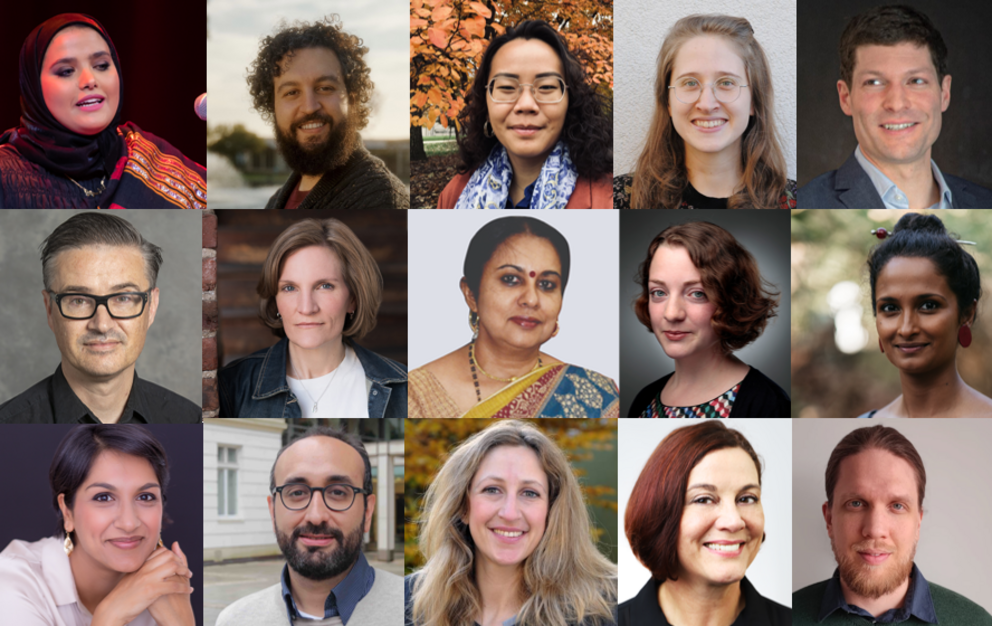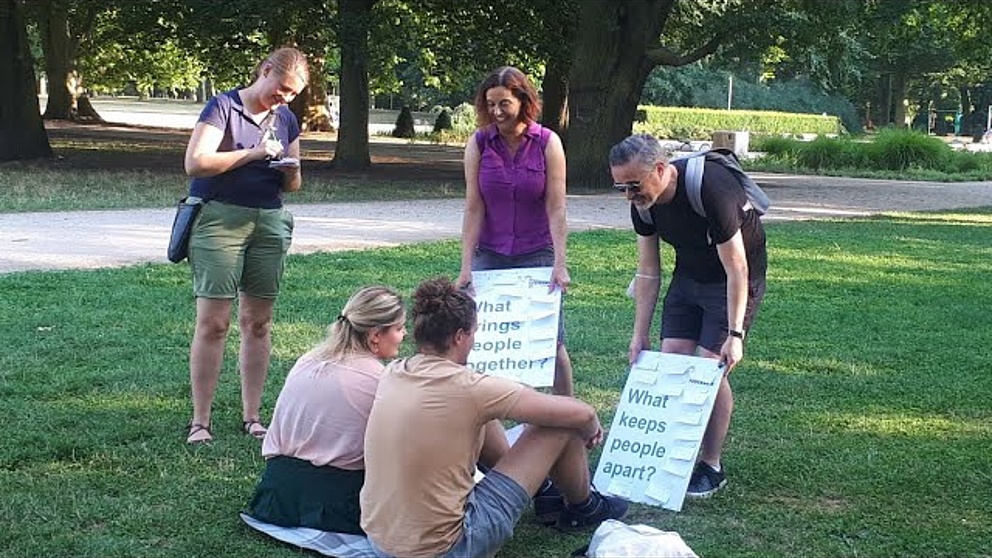

Contact
Press, Communications and Marketing
Tel.: +49 228 833-144
Fax: +49 228 833-441
presse[at]avh.de
In its first year, the Humboldt Residency Programme brought together 15 individuals from academia, journalism, philosophy and art to discuss the topic of “social cohesion.” Over a period of a year, including a two-month residency in Berlin, the participants elaborated new perspectives on the problems of social division as well as populism and extremism. Through various media formats, events and publications, the participants generated tangible new impetus in academia, society and the political arena.
In bringing together experts with different perspectives from around the world and supporting them in their outreach to civil society, we want to address both scepticism about science and the demand for scientific information.
With the online public event on 29 November the year-long collaboration of the first cohort came to an end. In his opening speech, Enno Aufderheide, Secretary General of the Humboldt Foundation, emphasised the programme’s enormous benefit to society, "In bringing together experts with different perspectives from around the world and supporting them in their outreach to civil society, we want to address both scepticism about science and the demand for scientific information."
The cohort members, Mala Pandurang (Director of Dr. BMN College, Mumbai) and Pasha Dashtgard (Director of Research at the Polarization and Extremism Research Innovation Lab, American University, Washington D.C.), subsequently involved the audience in their conversation on the topic of "Diversity, Conflict, and Social Cohesion: On Campus and Beyond." The campus, according to the two researchers, was a microcosm of social construction. One first of all had to understand its social complexity in order to purposefully employ programmes and activities for social cohesion. The preconditions for communality were an ethos of trust and respect, collaborative policies of cooperation and a culture of empowerment. One of the biggest challenges was to sensitise young people to the mechanisms of exclusion and stereotyping.
The final round of discussions once again highlighted the programme’s productive interdisciplinary approach. The members found it hard to take their leave. They have built new professional networks. They have developed personal relationships – beyond languages and disciplinary boundaries. The event concluded with the announcement of further collaborative projects among the members that would not have been possible without the encounters during the Residency Programme.
Results of the 2022 Humboldt Residency cohort
A panel discussion with the German National Academy of Sciences Leopoldina, a pub talk during Berlin Science Week, various networking meetings, including with the Berlin University Alliance and non-profit organisations like More in Common, and an exchange with Berlin residents in a park on the topic of "Social Cohesion": The residency in Berlin was filled with inspiring encounters, lively debates and mutual understanding.
Apart from the Humboldt Residency Diary, the residency generated a video documentation, a four-part podcast and a discussion paper as well as written reflections on the cohort’s activities. To find out more about the results of the cohort’s collaboration, visit our Humboldt Residency multimedia page.
Dialogue with society is one of the Foundation’s key objectives. For additional information on our activities in the field of Science Communication, visit https://www.humboldt-foundation.de/en/explore/newsroom/dossier-science-communication.

